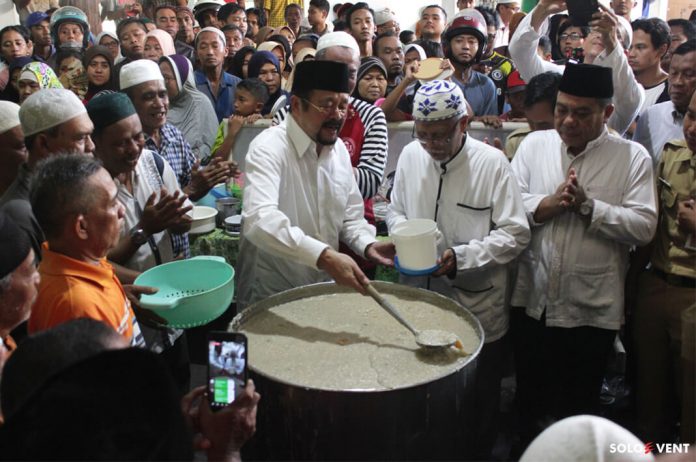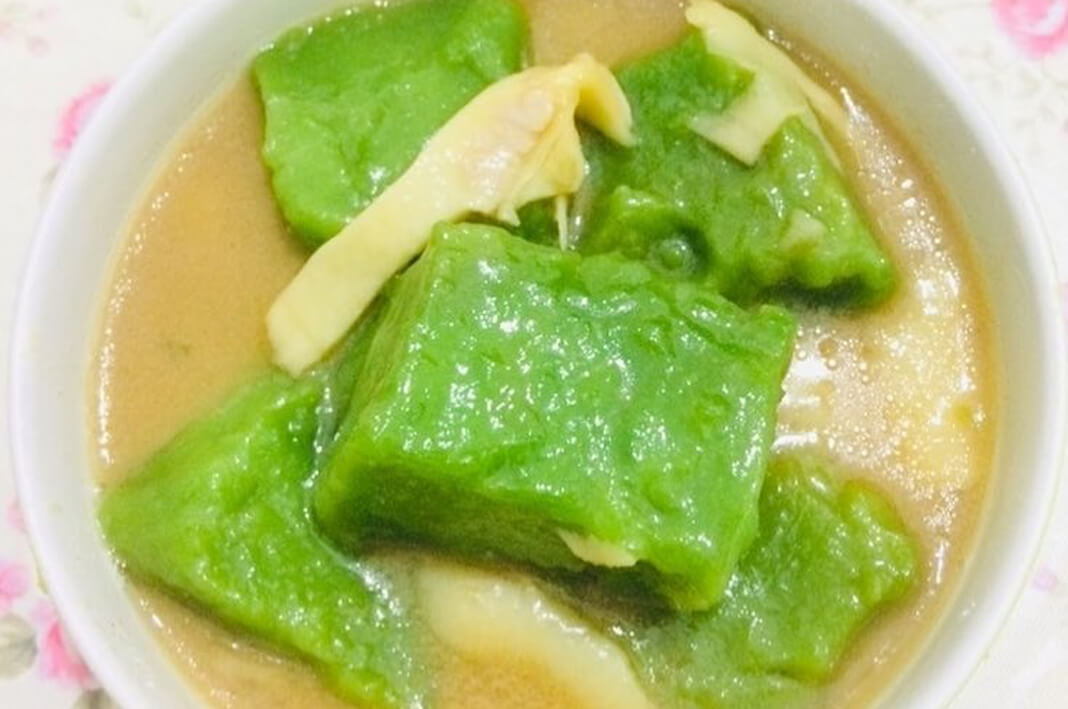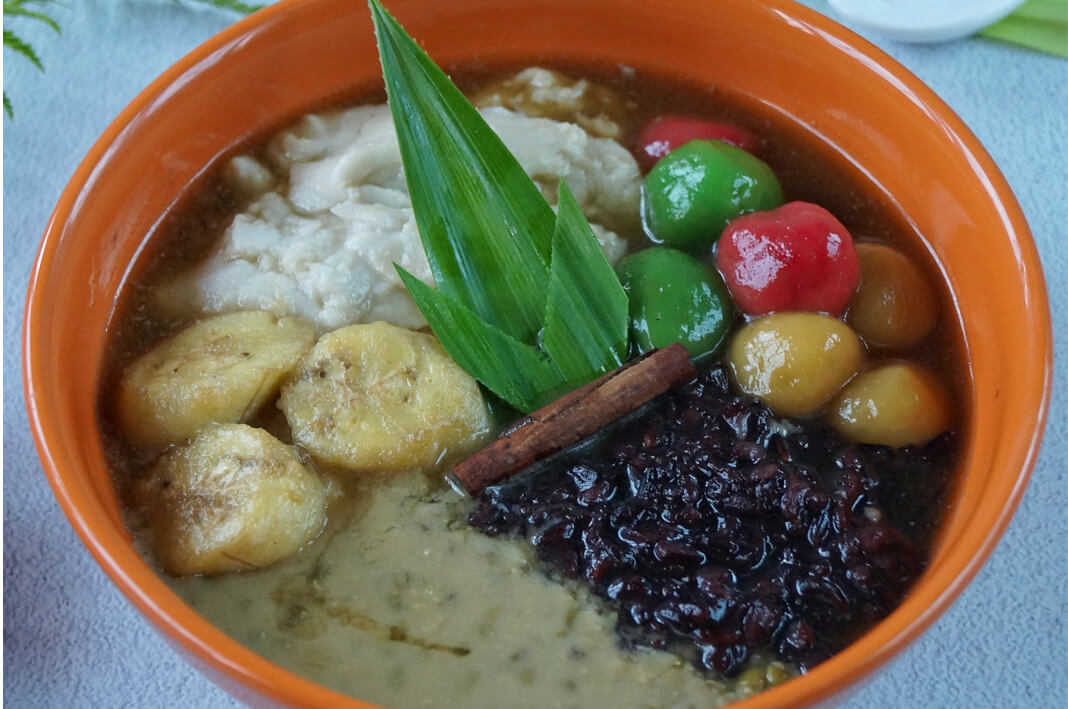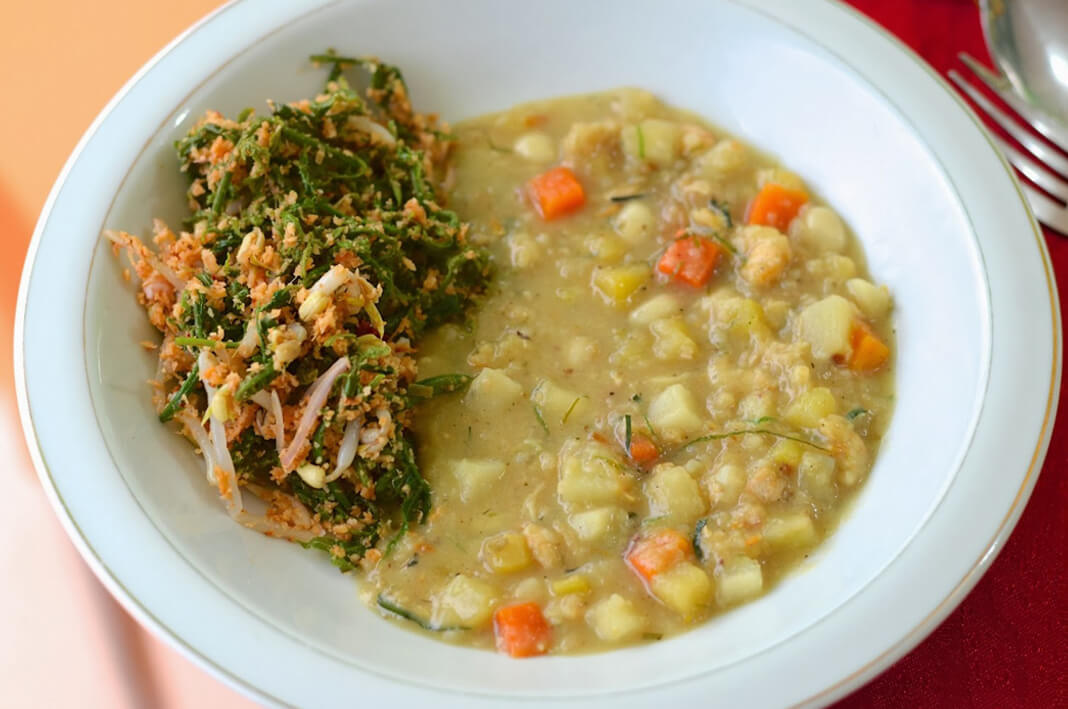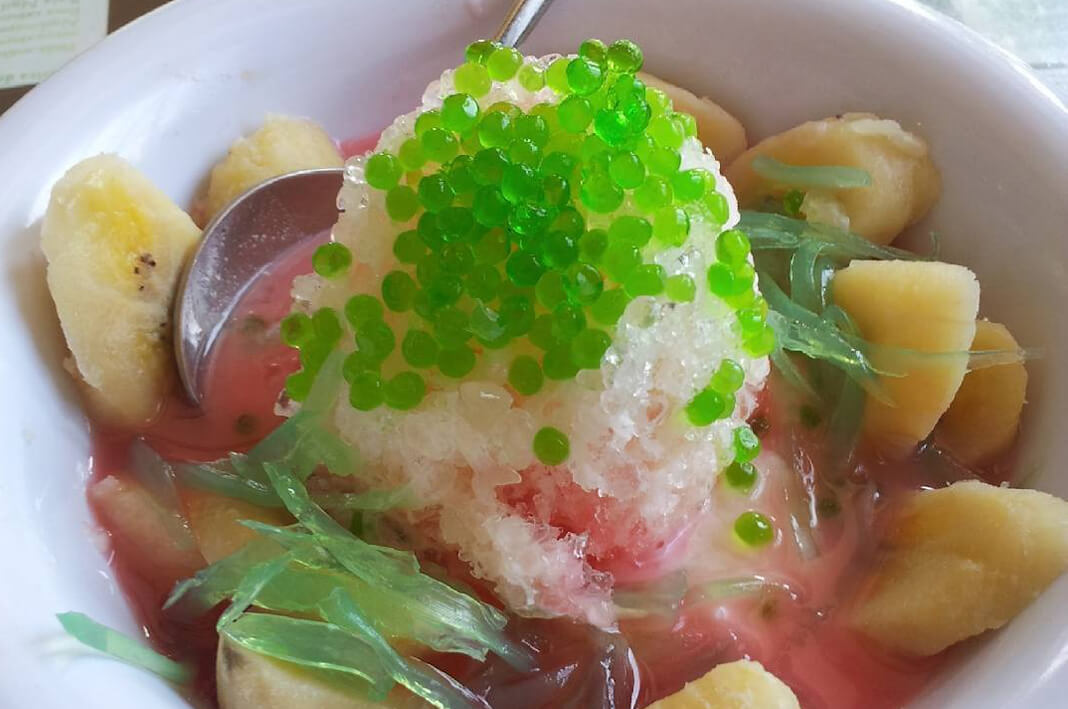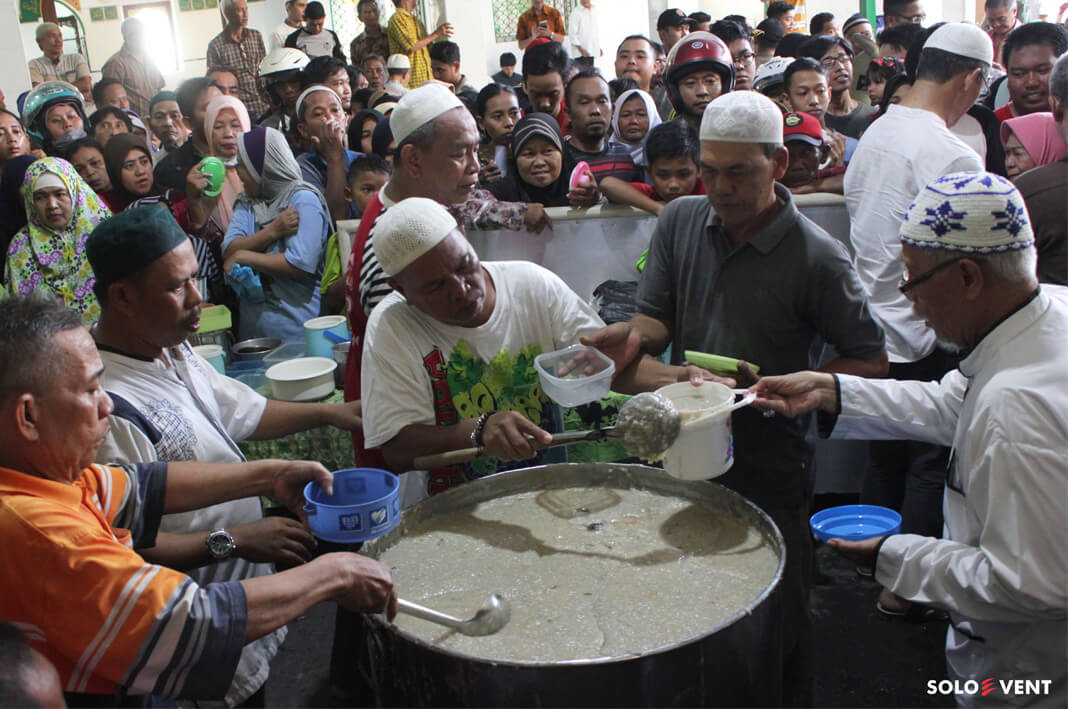Soloevent.id – Iftar is usually begun by eating sweets, as inspired by the Prophet’s Sunnah of eating dates and this small meal is known as Takjil. Some of them are:
- Jejongkong
This takjil comes from Lampung. This food is served in place of stainless steel shaped pan and it is similar to the marrow porridge from Java. It contains rice flour dough, sticky rice flour, colored starch, and squeezed suji leaves.
The name jejongkong is taken from the local language which means suji leaves.
When split, it reveals a soft texture and a green color that is a big part of enjoying it. It’s even tastier when served a palm sugar sauce.
- Kampiun porridge
This Minang porridge is a combination of steamer banana compote, Candil porridge, marrow porridge, and black sticky rice.
Kampiun means a winner. It is a special dish for Minang people. Usually, this porridge is served for breakfast, but during Ramadan, it is a fast-breaking dish.
That said, the Kampiun porridge can eliminate fatigue after fasting.
- Spicy Porridge Medan
Spicy porridge is a mandatory meal during Ramadan in Medan which is usually served in every mosque. Rice mixed with meat is the main ingredient.
The chili makes it spicy but soft. The flavor is the characteristic of this food.
- Ice Palu Butung
Es Pallu Butung is a dessert from Makassar, South Sulawesi. It is also known as Es Nasu Butung. Literally translated, es mean ice, pallu or Nasu means cooked, Butung means banana. Pallu, Nasu, and Butung are words from a Makassar dialect.
It involves placing the steamed banana inside a bowl and then topping it with a sauce made from rice flour, coconut milk, ice, and red syrup
- Samin porridge
The Samin porridge is also called Banjar porridge as it comes from Banjar city in South Kalimantan. Bubur Samin consists of coconut oil, various vegetables, spices, milk, ghee, and slices of beef.
Locals say that many years ago, a community from Banjar who moved to Surakarta to make a living as precious stone sellers would gather in Jayengan to celebrate their traditions, including eating Samin porridge to break their fast.
Residents from various areas arrive at the mosque at 4 p.m. carrying their own plates and food containers, ready to devour the porridge once the fast-breaking time comes.


